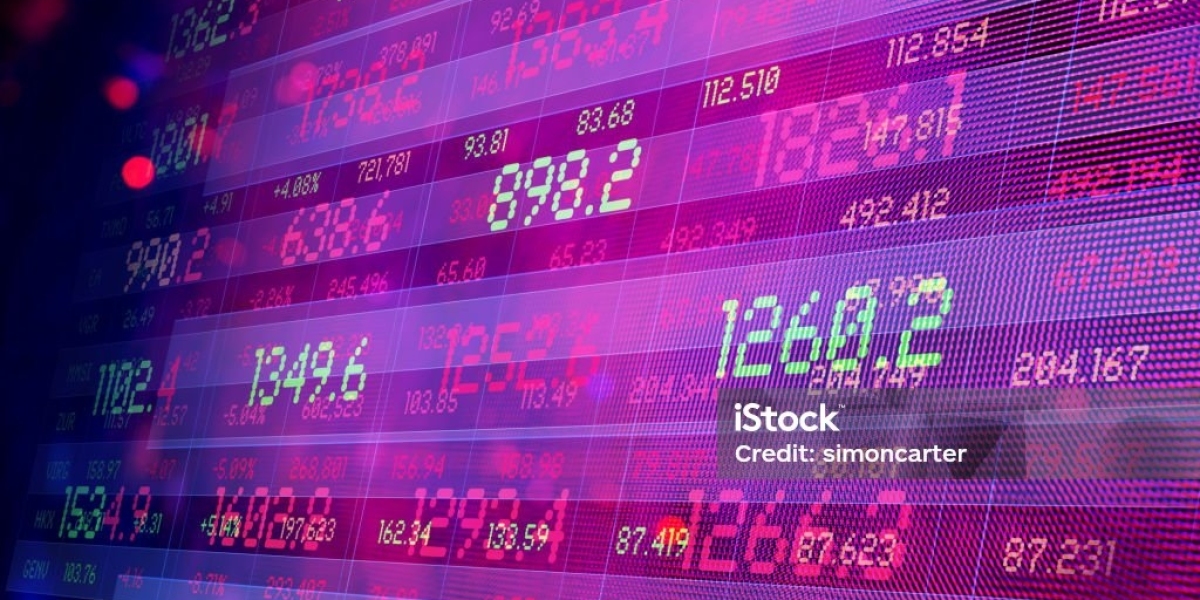Trading in financial markets is not merely a numbers game; it's a delicate dance of strategy, risk management, and perhaps most importantly, psychology. Understanding and mastering the intricacies of trading psychology is the key to navigating the unpredictable waters of the financial world. In this exploration, we delve into the nuances of trading psychology, shedding light on the psychological factors that influence decision-making in the dynamic realm of trading.
The Psychological Landscape of Trading
Embracing Uncertainty
One of the foremost challenges in trading psychology is embracing the inherent uncertainty of financial markets. The constant fluctuations, unforeseen events, and market volatility create an environment where uncertainty is the only certainty. Traders must cultivate a mindset that not only tolerates but thrives in this uncertainty, turning it into a source of opportunity rather than anxiety.
The Impact of Emotions
Emotions play a significant role in trading outcomes. Fear, greed, euphoria, and panic are just a few of the emotional states that can influence decision-making. Successful traders acknowledge and manage their emotions, preventing impulsive actions driven by fear or irrational exuberance. Emotional intelligence becomes a crucial tool for maintaining a disciplined and rational approach in the face of market turbulence.
Building a Resilient Trading Mindset
Discipline and Patience
Discipline and patience form the bedrock of a resilient trading mindset. Following a well-defined trading plan, sticking to pre-established risk parameters, and patiently waiting for favorable setups are essential components of a disciplined approach. Successful traders recognize that the market rewards those who adhere to a strategic plan rather than those who succumb to impulsive actions.
Learning from Losses
Losses are an inevitable part of trading. What distinguishes successful traders is their ability to view losses not as failures but as learning opportunities. Each setback becomes a chance to analyze, adapt, and refine strategies. Embracing losses with a growth mindset is pivotal for long-term success in the financial markets.
Overcoming Cognitive Biases
The Role of Cognitive Biases
Cognitive biases, inherent patterns of thought that deviate from rational judgment, can significantly impact trading decisions. Recognizing and mitigating these biases, such as confirmation bias or overconfidence, is crucial for making objective and informed choices. Traders who continuously work to overcome these biases are better equipped to navigate the complexities of the market.
Analytical Rigor and Objectivity
Maintaining analytical rigor and objectivity is paramount in the face of cognitive biases. Traders must approach market analysis with a clear and unbiased mindset, relying on data, research, and strategic analysis rather than succumbing to emotional impulses. Objectivity is the cornerstone of effective decision-making in the fast-paced world of trading.
The Importance of Continuous Learning
Staying Adaptive in a Dynamic Market
The financial landscape evolves, and successful traders embrace the necessity of continuous learning. Staying abreast of market trends, technological advancements, and economic indicators is vital for making informed decisions. The commitment to lifelong learning is what sets apart traders who thrive in the ever-changing dynamics of the financial world.
Seeking Mentorship and Community
Engaging with a trading community and seeking mentorship can provide invaluable insights and support. Learning from experienced traders, sharing experiences, and staying connected with a like-minded community can enhance not only knowledge but also emotional resilience. The camaraderie of a trading community acts as a support system during both highs and lows.
Harnessing Advanced Trading Strategies
Technical Analysis Mastery
A cornerstone of advanced trading strategies is mastering technical analysis. Understanding chart patterns, trend indicators, and oscillators equips traders with the ability to interpret market movements more effectively. Successful traders integrate technical analysis into their decision-making processes, gaining a deeper understanding of entry and exit points.
Algorithmic Trading and Automation
The advent of algorithmic trading has revolutionized the financial landscape. Traders now leverage complex algorithms to execute trades swiftly and efficiently. Automation not only minimizes the impact of human emotions but also allows for the execution of intricate trading strategies in volatile markets, enhancing overall trading performance.
Risk Management: The Guardian of Capital
Position Sizing and Capital Allocation
Advanced traders recognize that risk management is the guardian of their capital. Implementing sound position sizing strategies ensures that no single trade has the potential to disproportionately impact the overall portfolio. Thoughtful capital allocation across various asset classes further mitigates risk, safeguarding capital during market fluctuations.
Diversification Strategies
Diversification is a key element of risk management. Seasoned traders strategically spread their investments across different assets, sectors, and geographical regions. Diversification acts as a shield against unexpected market events, reducing the overall impact of adverse movements on the portfolio.
The Art of Mindful Execution
Developing a Trading Routine
Consistency is the hallmark of successful trading, and developing a structured trading routine contributes to this consistency. Establishing specific times for research, analysis, and trading activities helps traders maintain focus and avoid impulsive decisions. A well-defined routine fosters a disciplined approach, a crucial aspect of mindful execution.
Mindfulness and Emotional Regulation
Mindfulness, the practice of being present and fully engaged in the current moment, plays a pivotal role in trading psychology. Traders who cultivate mindfulness can observe their thoughts and emotions without being consumed by them. This heightened self-awareness contributes to better emotional regulation, preventing impulsive actions driven by fear or overconfidence.
Leveraging Technology for Strategic Insights
Big Data Analytics
In the age of information, big data analytics has become a game-changer for traders. Harnessing vast amounts of data allows for more informed decision-making. Traders leverage data analytics to identify patterns, market trends, and correlations that may not be immediately apparent through traditional analysis methods.
Artificial Intelligence in Trading
Artificial intelligence (AI) is making waves in the trading world, offering predictive analytics and pattern recognition capabilities. AI-driven algorithms analyze vast datasets at speeds incomprehensible to human traders, providing a competitive edge. Traders who integrate AI into their strategies gain insights that go beyond human analytical capabilities.
Staying Adaptable in Dynamic Markets
Real-Time Market Monitoring
In dynamic markets, real-time monitoring is paramount. Traders utilize advanced tools and platforms to stay abreast of market movements, news, and economic indicators. The ability to react swiftly to changing conditions is a hallmark of successful traders navigating the fast-paced world of financial markets.
Continuous Education and Skill Enhancement
Staying ahead in trading requires a commitment to continuous education and skill enhancement. Advanced traders actively seek out new strategies, technologies, and market insights. Webinars, industry conferences, and collaborations with other experienced traders contribute to an evolving skill set.
Navigating Turbulent Markets with Confidence
Understanding Volatility
Volatility is an inherent aspect of financial markets, and mastering its dynamics is essential for traders aiming for success. Understanding the various factors that contribute to market volatility, such as economic indicators, geopolitical events, and market sentiment, lays the foundation for effective decision-making in turbulent times.
Adapting Trading Strategies
In volatile markets, one size does not fit all. Successful traders adapt their strategies to align with market conditions. While trending markets may favor trend-following strategies, choppy or range-bound markets may call for different approaches, such as mean reversion strategies. Flexibility and the ability to pivot strategies are crucial in mastering market volatility.
Risk Management in Volatile Environments
Tightening Stop-Loss Orders
As volatility increases, tightening stop-loss orders becomes a prudent risk management strategy. Traders recalibrate their risk parameters to account for the heightened price swings, ensuring that potential losses are contained within predefined limits. This proactive approach safeguards capital during periods of market turbulence.
Hedging Strategies
In times of increased uncertainty, hedging strategies come to the forefront. Traders deploy instruments like options or futures to offset potential losses in their portfolios. Hedging provides a layer of protection, allowing traders to navigate volatile conditions while maintaining a balanced risk-reward profile.
Behavioral Analysis in Volatile Markets
Crowd Psychology
Understanding crowd psychology is particularly pertinent in volatile markets. The herd mentality often magnifies market movements, leading to exaggerated price swings. Traders who incorporate behavioral analysis into their decision-making process can anticipate and capitalize on the collective emotional responses that drive market volatility.
Contrarian Approaches
Contrarian strategies, which involve taking positions against prevailing market sentiments, gain prominence in volatile environments. Traders who can discern when market sentiment is excessively bullish or bearish position themselves to capitalize on potential reversals, turning market pessimism into profitable opportunities.
Utilizing Technology for Precision
High-Frequency Trading (HFT)
In the age of technology, high-frequency trading (HFT) has become a prominent player in volatile markets. Algorithms execute a large number of orders at incredibly high speeds, capitalizing on short-term price discrepancies. Traders embracing HFT technologies gain a competitive edge in executing rapid, data-driven strategies.
Automated Trading Systems
Automated trading systems, powered by artificial intelligence and machine learning, are instrumental in navigating volatile markets. These systems analyze vast datasets, identify patterns, and execute trades with precision. Traders who integrate automated systems into their toolkit can respond swiftly to market fluctuations.









